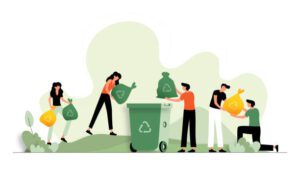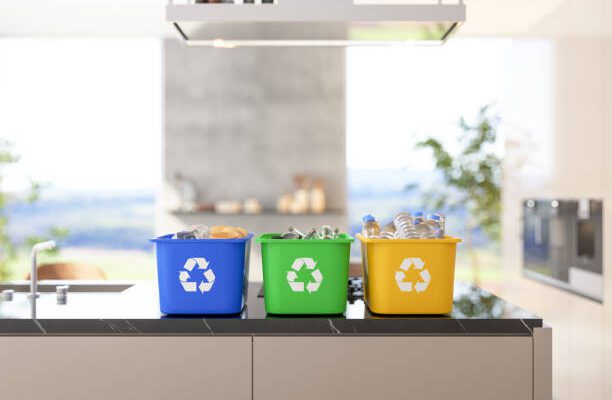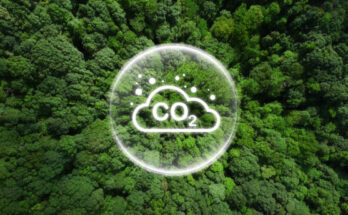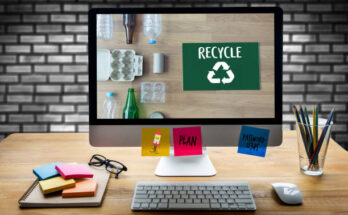Waste is unavoidable, at least in almost all industries. But, depending on your company’s needs, disposing of waste in an economical and environmentally friendly manner can be challenging. And ultimately problematic for owners and operators of businesses.
To assist business owners in resolving their own waste issues, whether it be through effective kitchen waste management practices. Or other types of food waste solutions, we will cover everything you need to know about waste management, its various types and techniques, and its benefits in this article.
 (Photo from istock)
(Photo from istock)
But what is waste management?
Waste management encompasses more than just categorizing one’s rubbish
In a nutshell, it involves the proper collection and disposal of trash, sewage, and all other types of garbage. Most of which is produced by human activity. Waste management enables individuals to consume sensibly and ensures that leftovers and other garbage products are appropriately disposed. Beyond the usual biodegradable vs. non-biodegradable categories. In this approach, we limit output and consumption as well as the hazards associated with just depositing waste in one location. Preventing future environmental harm like intoxication, poisoning, and other issues.
Waste management techniques:
Composting, recycling, landfills, incineration, waste to energy, waste minimization. And bioremediation are typical waste disposal techniques.
How do we handle waste right now? The most straightforward method is to avoid creating it in the first place, both economically and environmentally. The following are some waste management methods that are thought to be more environmentally responsible than landfill or dumpsite disposal methods:
- Reusing waste. Conventional reuse is when a substance is used repeatedly for the same purpose. New-life reuse is when a material is used for diverse purposes. Concrete is a fantastic example of reusing demolition waste as the foundation for roads.
- Waste reduction. This technique can be used to lessen how much garbage a person or business produces. It concerns the production, acquisition, use, and disposal processes of the commodities and services that people depend on.
- Recycling of waste. This approach, also known as material recovery, entails recovering particular waste materials. Including electronic waste, so they can be used as inputs in another process. Composting is the best illustration of waste recycling.
- Waste-to-Energy. Anaerobic digestion, gasification, pyrolysis, RDF incineration, and mass-burn incineration are some of the processes used in waste-to-energy systems.
 (Photo from istock)
(Photo from istock)
Advantages of management:
It is essential for all types of enterprises to provide responsible waste management, from food garbage management in restaurants. To construction debris segregation of construction companies and safe disposal of medical garbage from hospitals. It has many advantages for your business, as well as for your customers and staff, beyond just helping the environment. And if you haven’t already guessed it, here are some benefits of waste management:
- Keep Employees Safe: We cannot reasonably avoid the generation of different sorts of garbage caused by various commercial industries, as was already mentioned.
One of your main responsibilities as a business owner should be your employees’ health and safety. Making sure they’re safe also enables you to lower any expenditures that your company might face in the event that they require medical attention or other services.
- Dedicated to Environmental Preservation and Solidarity: We must always acknowledge that the Earth needs us more than we need it. It’s time for us as business owners to abandon this profit-only mentality. As a result, leading by example for other companies can strengthen and facilitate the cause so that the public and private sectors can work together to take both large-scale and small-scale initiatives to ensure that we still have a place to call home, especially for the next generation.
- Increase Your Chances of Recycling and Upcycling: Businesses can identify which products or materials can actually be reused again by engaging in management practices. Understanding the notion of responsible consumerism can help you, whether it be for aesthetic reasons or repurposed goods that can benefit your store or nearby franchises. Consider repurposing old wood blocks to make a table for your café, or consider using discarded construction supplies to provide a seating area for your personnel. There are countless wonders.
- Permanent Effectiveness: Every business Diner Trust
 (Photo from istock)
(Photo from istock)
Further:
- Consumers are becoming more aware of the brands and goods they support as a result of the numerous environmental crises that have been occurring throughout the world. For instance, fast-fashion companies are receiving criticism on social media for their unethical practices in the way they manufacture their goods. As a result, certain clients and even movements have begun boycott advocacy efforts.
- It’s a win-win situation for your company as well as the environment. Owner must adopt a long-term efficiency perspective since management extends beyond simple rubbish segregation. While though management can initially be laborious and meticulous, it has several long-term advantages. Yet, once you begin the management process, you will undoubtedly see its long-term benefits for the health of your business. When it comes to resources, marketing, and even costs, it aids in the resolution of various issues and bottlenecks.
Management is your way forward:
With what we now know about garbage management—including its different methods, significance, and possible advantages—it is crucial to make sure that all businesses, regardless of size, are engaging in waste management practices.
Responsible waste management can do wonders for your business, as well as for your employees, customers, and society at large, from the smallest amount of garbage created up to the largest and most hazardous ones.
References:
Unilever Food Solutions
Want to know ideas to lessen the water pollution, click on the link below:
How to Lessen Water Pollution




